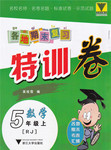题目内容
Making a public speech is the thing that most people don’t want to do. The reason is that we are all afraid of making mistakes in front of others. The more important the speech is, the more frightened we will be. But forget it now. Public speaking is easy. It’s just a simple talking, Although I’m a shy man, I’ve been making speeches and talking on radio and television for more than 30 years. Anybody who can talk can speak in public. Here are some of the lessons I have learned:
Keep your speech simple. Your audience can’t take all of your main ideas, and they can only remember one or two of them, not ten or twenty. So you should prepare one or two of your main ideas very well. But if you can’t express what you want to say, then your speech will not be paid attention to. And if you don’t have a clear idea of what you want to say, your audience won’t, either.
Organize your speech well. No matter how long or short your speech is, you have to organize your speech—how you are going to open or begin, what main points you want to make and how you’re going to close or end. A strong close is usually very important and critical(关键的): the last thing you say is what your audience will most likely remember. If not, they will be confused.
Keep your speech not long. The standard (标准的) length of a speech is usually 12 minutes. Most people can’t put their minds in one thing for too long time, which will make them tired and lose their interest. If you pay no attention to your audience’s reaction(反应),the audience will get bored. Of course, your speech will fail.
Following these suggestions above, you can make a good speech in public, and you will be an excellent speaker, I think.
Keep your speech simple. Your audience can’t take all of your main ideas, and they can only remember one or two of them, not ten or twenty. So you should prepare one or two of your main ideas very well. But if you can’t express what you want to say, then your speech will not be paid attention to. And if you don’t have a clear idea of what you want to say, your audience won’t, either.
Organize your speech well. No matter how long or short your speech is, you have to organize your speech—how you are going to open or begin, what main points you want to make and how you’re going to close or end. A strong close is usually very important and critical(关键的): the last thing you say is what your audience will most likely remember. If not, they will be confused.
Keep your speech not long. The standard (标准的) length of a speech is usually 12 minutes. Most people can’t put their minds in one thing for too long time, which will make them tired and lose their interest. If you pay no attention to your audience’s reaction(反应),the audience will get bored. Of course, your speech will fail.
Following these suggestions above, you can make a good speech in public, and you will be an excellent speaker, I think.
| Title: How to make a 小题1: speech | ||
| Technique | Reasons | Requirements |
| Keep it simple | You should think about your idea well enough | 小题2: one or two of your main ideas well. |
| If you have a 小题3: idea of what you want to say, your audience will have, too. | ||
| Organize it well. | You should get your speech well 小题4: | Know very well about the 小题5: ,main points and ending of the speech |
| If you don’t, the 小题6: will be confused. | ||
| Keep it 小题7: | Your speech should be short enough to attract your audience’s attention and 小题8: . | Make your speech as short as 小题9: . |
| If you don’t, the audience will feel 小题10: . | ||
小题1:public
小题2:clear
小题3:prepare
小题4:organized
小题5:audience
小题6:beginning
小题7:short
小题8:interest
小题9:bored
小题10:possible
试题分析:这篇短文主要讲述如何做好公众演讲。首先演讲内容要简单,不要冗余;其次要组织好你的演讲稿顺序;最后要注意演讲时间不宜过长。
小题1:文章开头第一句话Making a public speech is the thing that most people don’t want to do.“公众演讲是很多人不想要做的事情。”和第一段最后一句话Here are some of the lessons I have learned: “下面是我们需要学的几课。”可知本文主要讲述如何做公众演讲,故答案为public。
小题2:根据第二段最后一句话And if you don’t have a clear idea of what you want to say, your audience won’t, either.“并且如果你对于你想说的没有清晰的想法的话,你的观众也不会有。”可知,你要有清晰的想法观众才会理解,故答案为clear。
小题3:根据第二段第二行So you should prepare one or two of your main ideas very well.“所以你应该充分准备一到两点主要想法。”可知,故答案为prepare。
小题4:根据第三段第一句话No matter how long or short your speech is, you have to organize your speech“无论演讲长短,你必须要好好组织你的演讲。”可知,故答案为organized。
小题5:根据第三段最后一句话the last thing you say is what your audience will most likely remember. If not, they will be confused.“最后一点是你所说的要使得大多数观众记得。如果不这样,他们就会困惑。”可知,故答案为audience。
小题6:根据第三段第二句话how you are going to open or begin, what main points you want to make and how you’re going to close or end.“你将怎样开头,你想要表达的最主要的观点和你将怎样结尾。“可知,故答案为beginning。
小题7:如何演讲的最后一点是Keep your speech not long.“保持演讲不要过长。“也就是要精练,故答案为short。
小题8:根据第四段第二句话Most people can’t put their minds in one thing for too long time, which will make them tired and lose their interest.“大多数人把他们的思想只注重在一点上,这样就会使得观众疲劳无趣。”可知演讲要注意兴趣,故答案为interest。
小题9:根据第四段第三行If you pay no attention to your audience’s reaction(反应),the audience will get bored.“如果你不注意观众的反应,观众就会厌烦。”可知,故答案为bored。
小题10:最后一点主要告诉我们演讲时要注意短小精炼,所以要使得演讲尽可能的短。故答案为possible。

练习册系列答案
 中考解读考点精练系列答案
中考解读考点精练系列答案 各地期末复习特训卷系列答案
各地期末复习特训卷系列答案 小博士期末闯关100分系列答案
小博士期末闯关100分系列答案
相关题目

